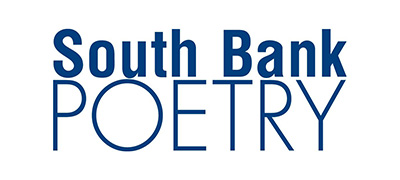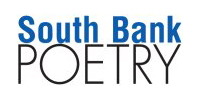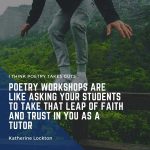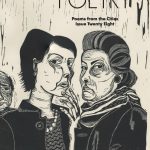Tea, Toast and All Things Poetry With Chris Hardy
Chris Hardy is not only a very talented poet, whose most recent collection (his 4th) is out with Indigo Dreams but also a member of the poetry band that Carol Ann Duffy has called “the most brilliant…in the world”. The poems in his latest poetry collection, ‘Sunshine at the end of the world’ are clear, intimate and vivid. I met up with Chris to talk all things poetry and music.
Q1 – What are your thoughts on writing every day. Do you write regularly or wait for the muse to strike?
I wait for a signal that switches on my attention. I know there’s a poem there. Sometimes I’m working on a few poems at a time, or there’s nothing new but I’ll be revising, or there’s nothing. I have learned not to worry – though I do.
Q2 – Where do you write?
Where I am undistracted. In the right mood I can allow words to surface without examining, or deleting. Heaney wrote about writing, ‘In the corner of a lecture’ – when your mind is focused, on something or nothing, the imagination sends messages to the surface.
Q3 – Why do you write?
I like discovering what the poem reveals, seeing what I didn’t know I knew. I feel cheerful when there’s a poem in a drawer, waiting to be attended to.
Q4 – What is it about poetry that makes you love it?
The appeal of poems I respond to is their unveiling of truth and mystery. Poetry that is clear and intense, that seems necessary to the poet. I’m not interested in poems that are puzzles, that don’t deliver. The Waste Land’s linked images are constructed to make you experience the concerns that drove Eliot to write, without having to pause and think. I prefer ‘Ode to the West Wind’, Wyatt, Sassoon, Owen, Larkin, Plath, Bishop, to many of Shakespeare’s sonnets, much of Donne, and all of Prynne.
Q5 – Why mix poetry with music? How has music influenced the way you write poetry?
LiTTLe MACHiNe set famous poems to music. We want to help them escape from the libraries, syllabuses, Universities and classrooms where they’ve been jailed. We’ve performed to thousands of people and they say, ‘You’ve sent me back to the poems’, ‘The words sound even better like that’, ‘I wish we’d been taught poetry that way in school’. It’s very pleasing that poets like Liz Berry and many others have encouraged us to set their writing to music.
As for music influencing my writing – I am aware of sound and beat, especially when revising: I listen for rhyme, half rhyme, assonance, hear these connections right down the page and try to clarify them. I pace out lines and line endings by the beat the syllables, words and phrases make.
Q6 – How is music different or similar to poetry?
I love European and Indian classical music but rarely listen to it, because then I cannot do anything other than pay attention to the noise – in fact that goes for all music. It’s too powerful. Poetry, read or heard, engages the mind first.
Q7 – Little Machine has worked with some great poets, who was the coolest poet to work with and who is your dream poet you would like to work with?
Roger McGough is cool – he’s made a life from writing and performing poetry and has an actor’s timing, voice and stage presence. It’s been a privilege to work with him and other real poets: Liz Lochhead singing and dancing with us as we performed her poem ‘My Way’; Gillian Clark’s enthusiastic response to our setting of her poem ‘Cold Knap Lake’; Carol Ann approaching us at Wenlock Poetry Festival, saying we were great and that she’d be in touch. As for someone to work with, it’s a dream so I can choose anyone: Byron, Homer and Sappho. What a line-up.
Q8 – Why use ‘Sunshine at the end of the World’ as your title?
That poem is not the strongest in the collection but there’s something about the phrase that stops you thinking, makes you aware of something inexpressible, like a koan – that’s poetry.
Q9 – Sum up your poetry manifesto.
Michael Longley: ‘Better silence than forgeries .. I wait for poems’.
Coleridge: ‘A well of the unconscious into which everything drops .. the act of creation is lowering the bucket and pulling up images and words ..’
George Herbert: ‘I once more smell the dew and rain and relish versing’.
* ‘Sunshine at the end of the world’ by Chris Hardy (Indigo Dreams 2017) can be bought here.






